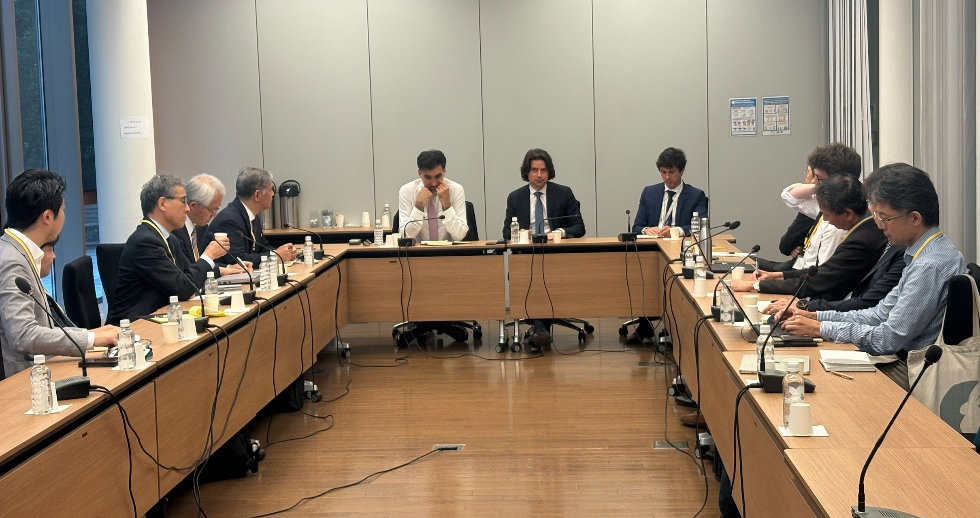Speakers:
-
Guillaume Ollagnier, Director for Strategic Affairs, Security and Disarmament, Ministry of Europe and Foreign Affairs (France).
-
Teymouraz Gorjestani, Deputy Director for Disarmament and Non-Proliferation, Ministry of Europe and Foreign Affairs (France).
Moderator
-
Dr. Akiyama Nobumasa, Director of the Center for Disarmament, Science and Technology, Japan Institute of International Affairs (JIIA).
Mr. Ollagnier delivered the lead-off remarks, emphasizing three key points:
1. Assessment of the Current Nuclear Landscape
Russia's development of new types of nuclear weapons and its repeated use of nuclear threats to support its conventional war in Ukraine present major strategic concerns. These actions, particularly Russia's breach of the Budapest Memorandum, highlight a dangerous use of nuclear coercion ("aggressive sanctuarization") to facilitate territorial aggression. If successful, this would set a dangerous precedent, increasing the risk of global proliferation.
China's rapid nuclear expansion, the growing gap between its "no first use" doctrine and actual capabilities, and the opacity of its program are key concerns. Meanwhile, France continues to monitor potential U.S. nuclear arsenal growth and the broader implications of Washington adapting to a "three-body problem"--managing relations with both Russia and China.
2. France's Nuclear Doctrine
France's doctrine remains strictly defensive, based on deterring threats to its vital interests. It rejects tactical or theater nuclear weapons, and its conception of "final nuclear warning" is not tactical use but a limited, singular strike signaling to an adversary that they might cross the threshold of vital interests.
While its doctrine remains unchanged, France offers strategic dialogue to partners and emphasizes that its deterrent complements--rather than substitutes--U.S. extended deterrence. Growing interest in the European dimension of France's vital interests and its deterrence reflects deeper interdependence and growing concerns over the long-term reliability of U.S. guarantees.
Guided by "strict sufficiency," France maintains an arsenal capable of imposing unacceptable damage regardless of the size of a potential adversary's arsenal. This principle is also applied to the ongoing modernization of its arsenal.
3. NPT Concerns and France's Stance on Proliferation
The 2026 NPT Review Conference faces serious challenges. Failure to reach consensus could damage the treaty's credibility, especially amid growing interest in nuclear options due to Russia's behavior.
France firmly rejects "friendly proliferation," emphasizing that more nuclear weapons do not equal more security. It reiterates this to its European partners, underscoring that Europe is already protected by three nuclear-weapon states. Moreover, the risks for states attempting to proliferate are high, as adversaries could be tempted to strike during the transition period.
Following Mr. Ollagnier's remarks, there was a lively discussion during the Q&A session.
4. Discussion Points
Participants explored several key issues, including:
-
the credibility of the U.S. commitment to European defense;
-
the role of France's nuclear forces in maintaining credible deterrence against Russia;
-
the implications of the U.S. "Golden Dome" concept for extended deterrence commitments;
-
France's engagement with Non-Aligned Movement (NAM) countries on disarmament and non-proliferation within the framework of the NPT.



